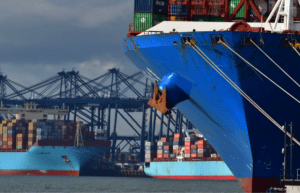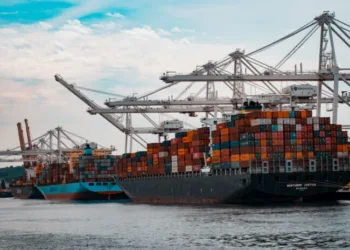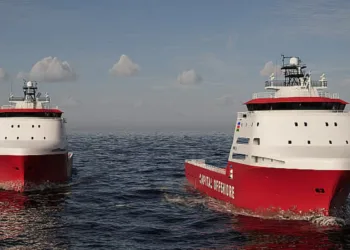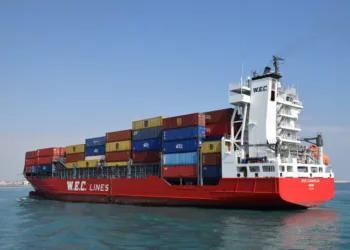
The inaugural annual assessment evaluating UK ports’ decarbonization efforts has demonstrated significant emissions reductions despite ongoing challenges in securing new and upgraded grid connections.
On Clean Maritime Day during London International Shipping Week, the British Ports Association published its 2025 Sustainability Report detailing findings from the BPA Net Zero Maturity Assessment Tool, which demonstrates that UK ports are achieving substantial and measurable progress toward net-zero objectives.
The tool monitors the sector’s long-term advancement across eight key decarbonization indicators, including environmental management practices, target establishment, emissions reductions, infrastructure investments, progress reporting and transparency, and stakeholder engagement.
The assessment provides a consistent framework for ports to measure progress over time and demonstrate their net-zero achievement commitment.
A key milestone captured by the tool will be ports’ ability to report successful net-zero attainment.
Initial reporting findings indicate that ports are:
- Engaging effectively with both public and private stakeholders, strengthening sector-wide collaboration.
- Achieving substantial emissions reductions, with an average 20% reduction in scope 1 and 2 emissions between 2022 and 2023.
- Utilizing Hydrotreated Vegetable Oil as the most widely adopted alternative fuel, supporting the perspective that biofuels will serve an important transitional role in ports’ net-zero journey.
However, the report also emphasizes continuing challenges.
Particularly, high costs and limited grid capacity are constraining ports’ ability to accelerate emissions reductions. These barriers affect not only ports’ own operations, but also the provision of transformative technologies such as shore power.
Overall, UK ports’ commitment to applying this tool and reporting on their progress demonstrates the sector’s determination to meet overarching decarbonization targets while continuing to address significant upcoming challenges.
The Net Zero Maturity Assessment Tool not only helps individual ports track and self-assess anonymously against their peers, but also builds a collective picture of how the sector is transitioning.
By sharing successes and identifying challenges, ports are taking bold steps toward a sustainable and net-zero future.
The hope is that, over time, the tool will offer an increasingly detailed picture of the industry’s progress and serve as a benchmark for sustainability performance in the years ahead.
Rhona Macdonald, Senior Sustainability Advisor, commented the BPA expects more to join next year, and the tool itself will be refined and improved by an industry steering group.
The post Biofuels support 20% reduction in port emissions appeared first on Container News.



















